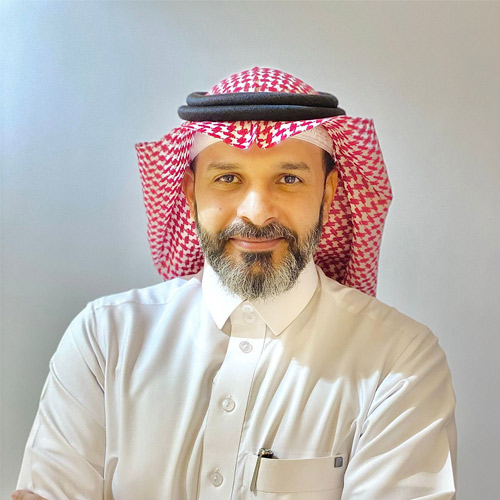
The Future Health Index (FHI) 2021 Saudi Arabia report, titled ‘A Resilient Future: Healthcare Leaders Look Beyond the Crisis,’ has been released by Royal Philips. The Future Health Index 2021 report, now in its sixth year, is based on proprietary research conducted in 14 countries, including Saudi Arabia, and is the largest global survey of its type to examine healthcare executives’ current and future goals.

“It is inspiring to see how confident healthcare leaders in Saudi Arabia are in the capabilities of the country’s healthcare system and our healthcare facilities to deliver on quality care,” said Eng. Mohamed Sindi, CEO of Philips Healthcare Saudi Arabia.
“I am delighted by the pace at which Digi-health solutions have been so well adopted and implemented locally, and this excites me about the future and the further evolution of AI solutions in healthcare,” said Eng. Mohamed Sindi.
He added, “This year’s report explores how healthcare leaders in Saudi Arabia want to collaborate with other private hospitals and healthcare facilities to drive digital transformation within the facility. In addition, a shift towards remote or virtual care and data privacy security remains high on the priority list.”
“The findings of the Future Health Index (FHI) 2021 Saudi Arabia report demonstrate the resilience and commitment of Saudi Arabia’s healthcare leaders in building sustainable, patient-centered healthcare systems beyond hospital walls.”
“By aligning ourselves to the Kingdom’s Vision 2030, which includes the Health Sector Transformative Program, based on the principles of value-based care, we believe we are well-positioned to continue improving people’s lives,” said Eng. Mohamed Sindi
Feedback from healthcare leaders, including executive officers, financial officers, technology and information officers, operating officers, and others, reveals a new vision for the future of healthcare by examining the challenges they’ve faced since the outbreak and where their current and future priorities lie. Their vision is framed by a renewed emphasis on partnerships, sustainability, and new forms of care delivery, both within and outside the hospital, with a focus on patient-centered healthcare facilitated by smart technology.
While the COVID-19 pandemic has hampered their ability to plan for the future, Saudi Arabian healthcare leaders are generally optimistic (99 percent) about the country’s healthcare system and confident (86 percent) in their hospitals or healthcare facilities ability to provide quality care in three years.
Healthcare executives in Saudi Arabia are currently more likely than those in many of the other nations polled to prioritize a transition to remote or virtual care as they continue to respond to the crisis as a top priority. Saudi Arabia’s healthcare leaders (71 percent) are among the most likely of those polled to seek a move to value-based care in the future, possibly as a result of the health sector transformation initiative aligned with Vision 2030. The vast majority of people (99 percent) believe that their country’s present healthcare policies and plans are helping to construct a more robust healthcare system.
Saudi Arabian healthcare leaders appear to be following a three-step strategy to digital transformation as they adapt to the massive changes of the past year and plan for the future of healthcare.
Saudi Arabian healthcare authorities are investing in telehealth at a higher rate than many of the other countries surveyed (81 percent), indicating widespread acknowledgment of the value of virtual care delivery.
Despite telemedicine being critical for both healthcare practitioners and patients during the pandemic, 14 percent of Saudi Arabian healthcare leaders believe that investment in technology will decline significantly in the future. One cause could be that new technologies have been implemented.
While telemedicine is the digital health technology that Saudi Arabian healthcare officials are presently investing the most heavily in, investments are expected to alter in the next three years, with 98 percent stating they would most prefer to invest in AI. Nearly three-quarters (71%) think AI technologies, such as those that anticipate outcomes or integrate diagnostics, are the digital health technology in which they would most like to invest in the future.
Nearly half of Saudi Arabia’s healthcare leaders (47%) agree that prioritizing strategic partnerships and collaborations is critical to successfully implementing digital health technology within their hospital or healthcare facility, which is higher than many of the other nations examined. Saudi Arabia’s healthcare leaders (44%) desire to work with other private hospitals or healthcare facilities to foster digital transformation within their own hospitals or facility.
However, as they pursue this three-step digital strategy, Saudi Arabian healthcare officials encounter challenges that must be solved in order to successfully prepare for the future and fully exploit digital health technologies, such as personnel inexperience and data management issues.
Saudi Arabian healthcare leaders expect around a fourth of routine care to be delivered outside the hospital walls in three years. Ambulatory primary care facilities are likely to account for a significantly larger share of out-of-hospital routine care delivery in the future than they do now. The usage of the home and pharmacies and other retail sites, as care delivery locations is likely to increase in the future, aided by the rising acceptance of digital health solutions.
The global healthcare sector is tasked with creating a more sustainable healthcare ecosystem. Saudi Arabian healthcare leaders expect to shift their priority to implementing sustainable measures(71%), which is higher than the average of the 14 nations surveyed.
Philips has been doing unique research to help countries assess their ability to solve global health challenges and establish efficient health systems since 2016.
